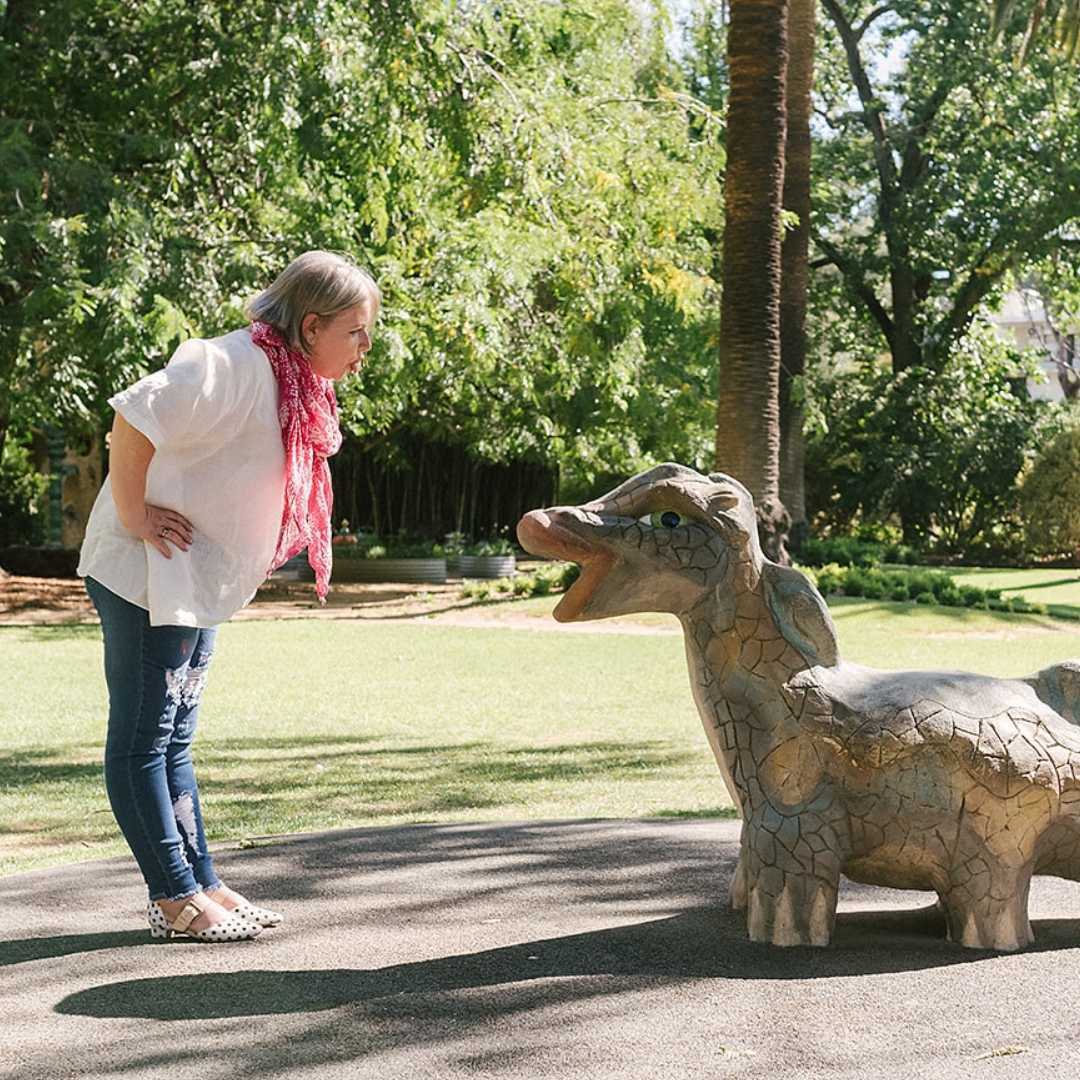What does your brand say about you?
Who are you?

Did you hear that song when you read the title of this article?
“Whooooooo are you? de do de do…
No, just me? Oh well – I must have watched too many episodes of CSI in my past.
Anyway, onto “Who are you?”.
Today, I'm talking about brand.
Many people, when they think about brand, go straight to their logo.
However, your brand is more than a logo. A logo, while important, is a visual representation of your brand and only one aspect of it.
So, what is “brand”?
By nature your brand is a combination of image, functional and emotional benefits and credibility. (Gawd – didn't that sound formal!!!)
Basically, it's what your customers feel about your business and/or products, and therefore is a key driver as to why your customers buy from you.
People do not only buy from you because of your logo, or for just the basic benefits you may offer. They will also purchase based on the emotions your business/products/services create for them.
A bit of science… (yeah, formal stuff, but it's interesting formal stuff).
Based on the research of neuroscientist Antonio Damasio we know that we, as humans, make a decision based on emotion and justify that decision with logic afterwards.
So, therefore, your brand is more than your logo.
It is what people think of you, your business, your product or service, when they hear your business name, use your product, experience your service, and see your visual representation of your brand.
So it's really, really, really important that you know what your brand is and says to people.
And then make sure your brand is consistent across all aspects of your business.
How do you know what your brand says?
Warning – there may be some marketing jargon coming up! Don't worry – I'll explain it clearly in non-marketing terms.
When working out what your brand is – there are five key aspects to consider.
1. Personality
2. Values of the user
3. Emotional rewards
4. Functional benefits
5. Attributes
Let's look at each of these.
Personality

Imagine your business as a person.
How would you describe that person? Are they fun, dynamic, conservative, sincere? Extroverted or responsible? Self-assured or optimistic?
Strong brands have distinct personalities.
For example, Starfish Marketing personality is fun, a little bit quirky (different), sincere, real yet optimistic.
Values of user
Yeah, that's marketing jargon!
Warning Formal description coming up…
“Values of User” is defined in the Oxford dictionary as being ‘one’s principles or standards, one’s judgement of what is valuable or important in life’.
Errrgh – doesn't that sound formal.
Basically it means that different people have different values and those values influence decision making.
So, to understand or define your brand, you need to know and consider what your customer values are.
This is where knowing who your ideal customers are is important.
If you don't know who your ideal customer is, here are five questions to help you work that out.
Using Starfish Marketing as an example again, the Values of one of our ideal clients include loyalty, humour, integrity, action oriented, and trust.
Emotional rewards

Emotional rewards refer to how your customers feel as a result of dealing with you and your business, and buying your products and services.
This is really important to remember. Because you want your customers to be loyal to you. And to do that, they need to have an emotional connection with your business.
So, how do you want your customers to feel?
Proud; smart; valued; relieved, confident, important, warm and fuzzy?
Whatever emotions you want your customers to feel about your business/products, your brand should promote this.
For example, an emotional reward of working with Starfish Marketing is that you feel less stressed because you don't have to worry about your marketing – it just happens.
Functional benefits
More marketing jargon – bleh!
In non-marketing terms, these are the benefits your customers receive from your product or service.
So ask yourself, what are the functional benefits that you deliver?
For example, a functional benefit of working with Starfish Marketing is that your marketing gets done. Another is that you, as a business owner, get to spend more time working on your core business and doing what you love.
Attributes

Brands must possess relevant and distinctive features. Blah blah, marketing jargony blah blah blah!!!
Okay, what are attributes?
Think about them as the actual tangible, real things that your customers can see or touch.
It's usually easier for product based businesses to identify your attributes. For example a well-known biscuit brand could be something like; distinctive caramel chocolate, multi-layered chocolate biscuit that is sweet and crunchy with a chocolate filling. (Can you guess what brand/product that is?)
For service based businesses it can be challenging to identify the real things your customers can see and touch – because at the end of the day a service isn't really a tangible thing.
So, try to bring it back to the service you are delivering.
For example the attributes of Starfish Marketing can include expert marketing advice or social media services like managing Facebook and Instagram pages.
What is your brand?

Use the worksheet below to help you work out what your brand says.
Download our Branding Worksheet here
Once you've worked out the characteristics of your brand , you should then be able to tell people all about your brand; What it represents.
What do those five things say about you, your business and products?
For example, for Starfish Marketing we're all about making a difference by making your life easier, making your marketing happen and having fun along the way. Pretty much the starfish story, really.
When you know what your brand is, this should then be reflected in your marketing.
But it doesn't stop there.
Everything about your business, product or service should demonstrate your brand.
Creating consistency across your brand is key to building that loyalty we talked about earlier.
So… go forth, work out your brand, and have a look at everything across your business to make sure it is reflective of what your brand says.



